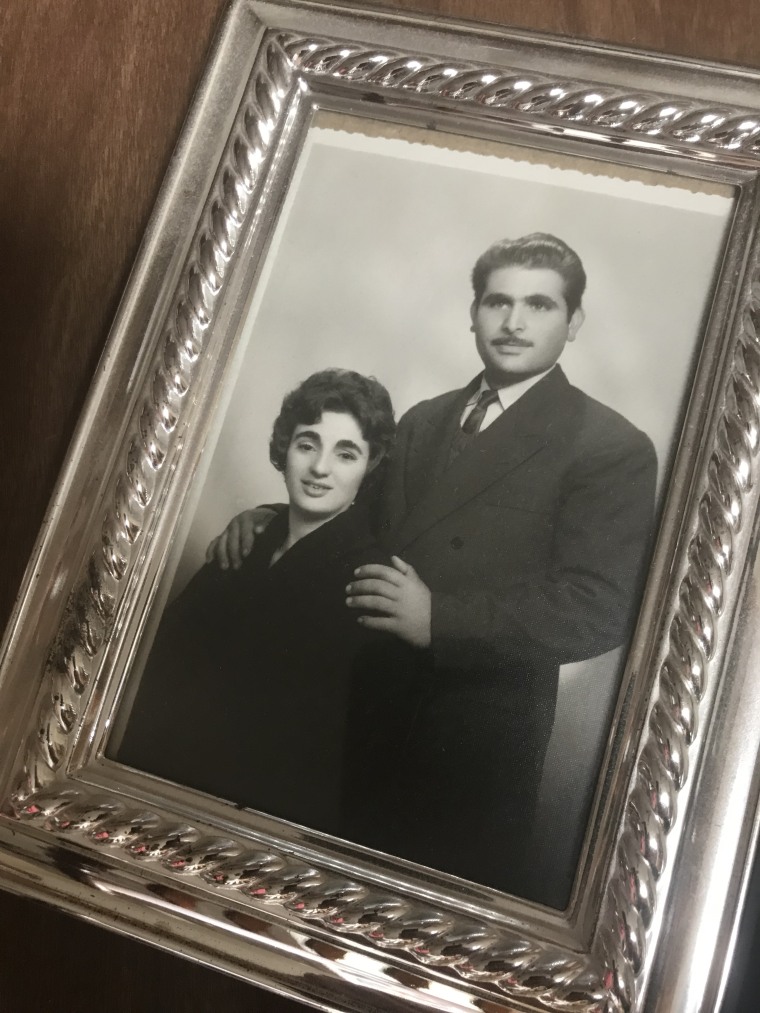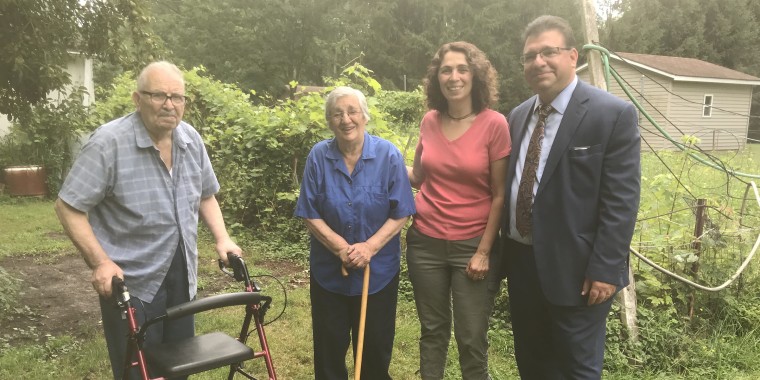Millions of people live with Alzheimer’s in the U.S., but the disease is almost non-existent on a remote Greek island nicknamed “the place where people forget to die.”
Residents of Ikaria stay healthy well into their 90s and even 100s with very little risk of Alzheimer’s, dementia or any other diseases of old age.
But something frightening happens when you bring those same healthy Ikarian genes to the U.S., as NBC special anchor Maria Shriver discovered for TODAY’s “Brain Power Today” series. You can see it in Cleveland, Ohio, which is home to a number of first- and second-generation immigrants from Ikaria.
“When these Ikarians come here to Cleveland, you start seeing Alzheimer’s at the same rate as you see in the rest of America. They bring all their values here and they get sick,” said Dan Buettner, a National Geographic fellow and author of “The Blue Zones Solution: Eating and Living Like the World's Healthiest People.”
Buettner has been unlocking the health secrets of Ikaria for the past decade. He studies what residents eat, how they move, their social connections and how it all contributes to their incredible longevity.
Last year, Buettner went to Cleveland to meet the Gemelas family — Ikarians who left the island in the 1950s in search of the American dream.
“By them moving here, I think they took 20 years off my life,” Jim Gemelas said, noting his mother just became the first person in the family to be diagnosed with Alzheimer’s. “My mom was as sharp as a tack, it’s terrifying.”

He thought his genes would protect him, but he now worries the family’s American lifestyle could make him next. Gemelas, who is a lawyer, doesn’t do any of the things that would have come naturally to him on Ikaria, Buettner noted.
“He’s not very socially connected. He’s got all the risk factors that have him [headed] like a locomotive towards Alzheimer’s,” Buettner said. He’s also stressed out, not sleeping well, sedentary and eating a bad diet, Shriver noted.
For Jim’s sister Tina, their mother’s diagnosis is wake-up call. She worries about her own health, too.
“Sometimes having more isn’t better. They had less on the island, but I think that’s what made them as healthy as they were,” she said. “I know if you have a mother who has Alzheimer’s, your chances are higher of having Alzheimer’s.”
Buettner showed the family some of the little ways they could bring more of the Ikarian lifestyle to Cleveland. He began with a trip to the grocery store, where he zeroed in on lemons, an Ikarian staple. Squirting a little lemon juice on almost any food lowers the glycemic index, or slows the sugar absorption, so it’s not as hard on a person’s brain and makes diabetes less likely, Buettner said, calling it one of the “great little tricks” people in Ikaria know instinctively.
He also noted about 120 different greens have been identified on Ikaria, with some containing ten times the antioxidants of wine. Learning some plant-based recipes and limiting sugar and junk food is key to preventing Alzheimer's, he noted.
But cooking and eating in healthy ways is only part of the battle; moving your body throughout the day matters, too. Ikarians may not do yoga classes or go to the gym, but they walk everywhere, often uphill, rather than get in a car, which naturally keeps them active all the time. “If it was daylight, she was moving,” Gemelas said of his grandmother’s lifestyle on Ikaria.
“It’s far more important to walk four or five times a day than it is to work all day long and think you’re going to go to the gym at the end of the day,” Buettner said. Working out very hard for 30 minutes is not going to make up for eight hours of sitting at work or in front of the TV, he added.
The modern lifestyle may make you miss something else that keeps the brain sharp: Enjoying the company of other people. Your ancestors never had to try to be social, it just came with the territory — they’d just bump into others all the time in the village and talk, he pointed out. So one of the most powerful things people can do is to move to an area with sidewalks, bike lanes and nearby shops so they’re more likely to meet their neighbors and make friends.
Jim Gemelas feels the isolation, too.
“People came over and just dropped by; (now) nobody drops by anymore. You have to set a time, you have to plan for it,” he said.
But on a recent night, everything worked out perfectly as the family came together in the backyard to celebrate their mother’s 87th birthday. Her recent diagnosis is a reminder they still have the power to fend off the disease.
“About 90 percent of Alzheimer’s is preventable,” Buettner said. “Most of your mental health is up to you and the environment you create for yourself.”

